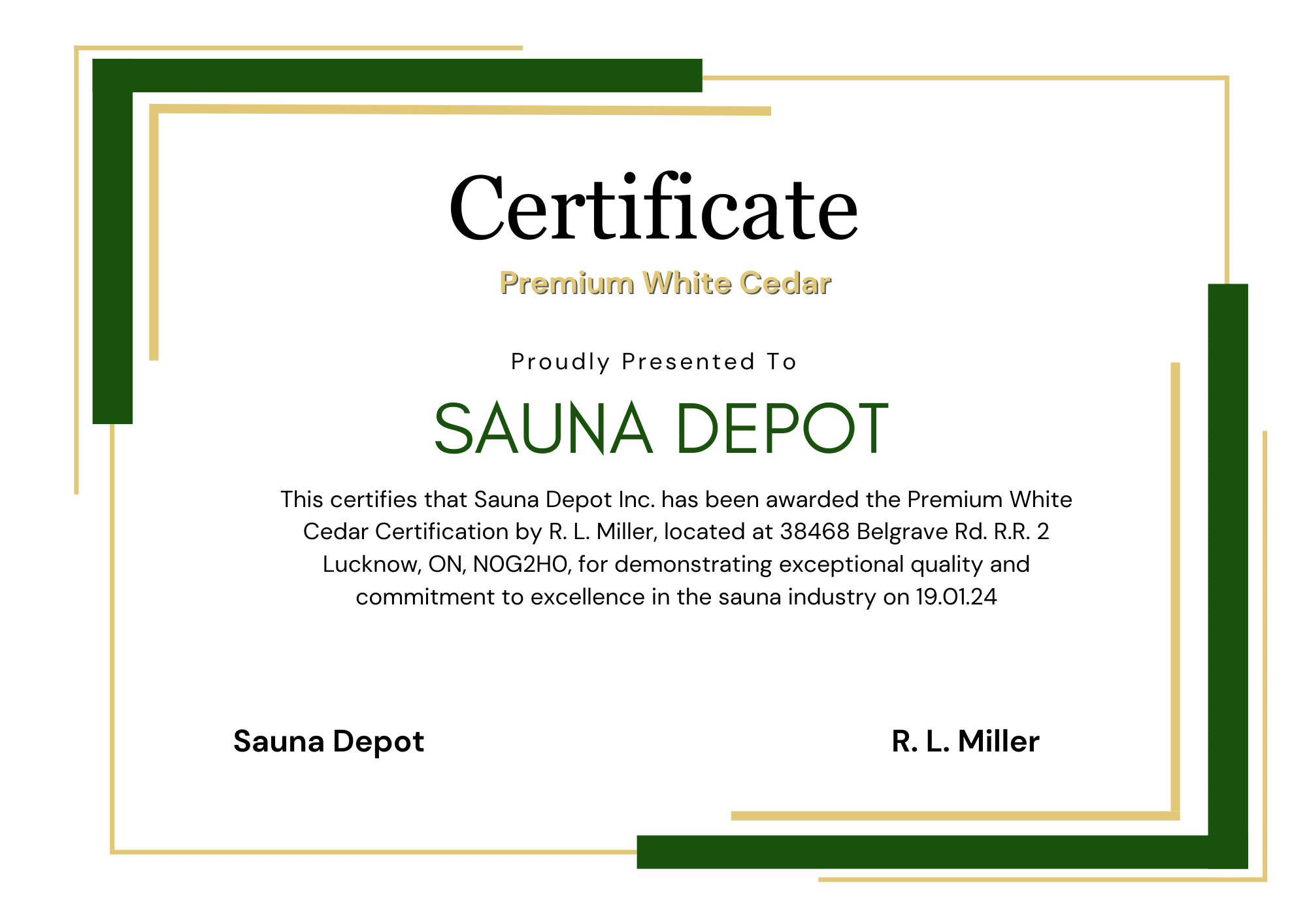How to Create the Perfect Stress-Relieving Sauna Session
With the right touches, your sauna can become the ultimate stress-management tool. Creating the perfect Stress-Relieving Sauna Session is all about combining the right elements such as lighting, sound, aroma, breathing, and contrast therapy to craft an experience that melts away tension and restores your sense of calm. By following these tips and making your sauna sessions a regular part of your wellness routine, you can enjoy a healthier, happier, and more relaxed you.
Why Chronic Stress Can Ruin Your Health?
Acute stress is a natural response to challenges or threats and usually it goes away without any bad consequences, but when it becomes chronic, it can wreak havoc on your health. As a response to stress your body (to be precise – your adrenal gland that is located on top of your kidneys) produces and releases stress hormone cortisol.
Cortisol is a steroid hormone that regulates a wide range of processes throughout the body but mainly helps fight and cope with stress. The main health risks of chronic stress are:
- Weakened Immune System: Cortisol suppresses your immune system lowering your immune defenses and making you more susceptible to illness. Over time, this leaves you more vulnerable to colds, infections, and even chronic diseases.
- Cushing syndrome: Too much cortisol can cause some of the main symptoms of Cushing syndrome — a fatty hump between the shoulders, a rounded face, and pink or purple stretch marks on the skin. Cushing syndrome also can cause high blood pressure or bone loss.
- Weight Gain: Stress often triggers cravings for unhealthy, comfort foods, which can lead to weight gain. Additionally, cortisol contributes to fat storage, particularly around the abdomen, increasing the risk of obesity and related health issues like diabetes and heart disease.
- Type 2 diabetes: Cortisol increases your blood sugar (glucose) providing your body with energy to fight stress. Chronically elevated cortisol levels cause chronically elevated glucose levels making you insulin resistant.
- Heart Health Risks: Stress can increase your heart rate and blood pressure, putting strain on your cardiovascular system. Over time, this can lead to a higher risk of heart attacks, strokes, and other heart-related issues. Stress also encourages unhealthy habits like overeating, smoking, or excessive drinking, which further impact heart health.
- Emotional Unbalance: Cortisol works with certain parts of your brain to control your mood, motivation, and fear. Initially, excessive levels of cortisol cause euphoria, but prolonged exposure of the brain to a high concentration can result in the appearance of other psychological symptoms such as irritability, constant heightened anxiety, and depression.
- Mental Health Issues: Prolonged stress is a major contributor to anxiety, depression, and other mental health disorders. It can create a cycle of negative thinking, reduce your ability to cope with everyday challenges, and lead to burnout. Left unchecked, stress can erode your emotional well-being and overall quality of life.
- Digestive Problems: Stress affects your digestive system by slowing it down or speeding it up, leading to issues like indigestion, acid reflux, irritable bowel syndrome (IBS), and more. Your gut is highly sensitive to stress, which can also disrupt the balance of healthy bacteria in your digestive tract.
- Sleep Disruptions: When you’re stressed, your mind races making it difficult to fall or stay asleep. Over time, sleep deprivation can contribute to a host of health problems, including weakened immunity, impaired cognitive function, and increased risk of chronic diseases like diabetes and hypertension.
Sauna sessions can help you manage stress and mitigate its harmful effects.
Why Saunas Are Perfect for Stress Relief
Before we get into the specifics, let’s talk about why saunas are such powerful stress relievers. Saunas offer a unique combination of heat therapy, relaxation, and detoxification that can have profound effects on your body and mind.
- Heat Therapy: The high temperatures in a sauna help relax your muscles, improve circulation, and release endorphins, your body’s natural feel-good chemicals. This combination helps to reduce physical tension and create a sense of calm.
- Mental Detox: Sauna sessions provide a quiet, peaceful environment where you can escape the chaos of daily life. The combination of heat and stillness allows you to clear your mind, focus on your breathing, and let go of stress.
- Detoxification: Sweating is one of your body’s natural ways of eliminating toxins. Sauna sessions encourage deep sweating, which helps flush out impurities and leaves you feeling lighter, both physically and mentally.
How to Create the Perfect Stress-Relieving Sauna Session
Now, let’s explore how to create the perfect stress-managing sauna session that maximizes these benefits.
Step 1: Set the Mood with Lighting and Sound
Creating the right atmosphere is key to a relaxing sauna experience. Start by thinking about lighting and sound. These elements can significantly impact your mood and help you enter a state of deep relaxation.
Lighting Ideas:
- Soft, Ambient Lighting: Harsh, bright lights can disrupt your relaxation. Opt for soft, warm lighting, like LED strips or dimmable lights, to create a calming ambiance. If your sauna has windows, consider placing it in a spot where natural light can gently filter in.
- Color Therapy: Color therapy (also known as chromotherapy) involves using different colors of light to influence your mood. For example, blue light promotes calmness, while green light encourages balance and harmony. Look for LED lights that can change color, and experiment with different hues during your sauna session.
Sound Ideas:
- Nature Sounds: The sound of birds chirping, waves crashing, or rain falling can help transport you to a peaceful, natural setting. Create a playlist of your favorite nature sounds, or use a sound machine to fill your sauna with soothing audio.
- Relaxing Music: Soft, instrumental music can enhance the sense of calm in your sauna. Look for playlists designed for relaxation, meditation, or yoga, and let the music guide you into a deeper state of relaxation.
Pro Tip: Consider adding a Bluetooth speaker or built-in sound system to your sauna for an immersive audio experience. Just make sure it’s designed to withstand the heat and humidity of a sauna environment.
Step 2: Use Essential Oils for Aromatherapy
Aromatherapy is a powerful tool for managing stress, and essential oils can enhance your sauna experience in wonderful ways. Different essential oils offer different benefits, so choose one that matches your mood and needs.

Popular Essential Oils for Stress Relief:
- Lavender: Known for its calming properties, lavender is perfect for reducing anxiety and promoting relaxation.
- Eucalyptus: This invigorating oil can help clear your mind, improve focus, and relieve mental fatigue.
- Peppermint: If you’re feeling sluggish or overwhelmed, peppermint can provide a refreshing boost of energy and clarity.
- Chamomile: Chamomile is soothing and grounding, making it ideal for calming nerves and easing tension.
How to Use Essential Oils in Your Sauna:
- Dilute in Water: Never pour undiluted essential oils directly onto sauna stones. Instead, mix a few drops of your chosen oil with water, then ladle the mixture onto the hot stones. The steam will carry the scent throughout the sauna.
- Aromatherapy Diffuser: If you prefer, you can use an essential oil diffuser in your sauna. Just make sure it’s heat-safe and designed for sauna environments.
Pro Tip: Experiment with essential oil blends to create a customized aroma for your sauna sessions. For example, try combining lavender and chamomile for ultimate relaxation, or eucalyptus and peppermint for a refreshing, stress-busting experience.
Step 3: Focus on Your Breathing
Deep breathing is one of the most effective ways to reduce stress and anxiety, and the sauna provides the perfect environment to focus on your breath. When you breathe deeply, you activate your body’s relaxation response, which helps lower your heart rate, reduce muscle tension, and promote a sense of calm.
Breathing Techniques for the Sauna:
- 4-7-8 Breathing: Inhale through your nose for 4 counts, hold your breath for 7 counts, then exhale slowly through your mouth for 8 counts. Repeat this cycle several times to reduce stress and increase relaxation.
- Box Breathing: Inhale for 4 counts, hold for 4 counts, exhale for 4 counts, and hold for 4 counts again. This simple, rhythmic breathing technique helps quiet the mind and reduce anxiety.
Pro Tip: Pair your deep breathing with a guided meditation or mindfulness practice to enhance your mental focus and relaxation.
Step 4: Alternate Heat with Cold Therapy
Alternating between heat and cold therapy can be an invigorating way to manage stress. The contrast between the sauna’s heat and a cold plunge or shower helps stimulate circulation, reduce inflammation, and boost endorphin levels, leaving you feeling refreshed and recharged.
How to Incorporate Cold Therapy:
- Cold Shower: After spending 10-15 minutes in the sauna, step into a cold shower for 30 seconds to a minute. The sudden change in temperature will wake up your body and mind, leaving you energized and stress-free.
- Cold Plunge: If you have access to a cold plunge pool, alternate between the sauna and the plunge for an even more invigorating experience. Spend a few minutes in the sauna, then take a quick dip in the cold plunge before returning to the heat.
Pro Tip: If you’re new to cold therapy, start slowly and gradually increase your time in the cold. Always listen to your body and stop if you feel uncomfortable.
Step 5: Hydrate and Replenish
Sweating in the sauna is a great way to detox, but it’s also important to replenish the fluids you lose. Proper hydration helps your body recover from the heat and keeps your mind clear and focused.
Hydration Tips:
- Drink Water Before and After: Make sure to drink plenty of water before, during, and after your sauna session. This helps prevent dehydration and keeps your body functioning optimally.
- Herbal Teas: Sip on herbal teas like chamomile or peppermint during your sauna session for added relaxation and hydration. Just make sure to keep your drinks outside the sauna and take breaks to rehydrate.
Pro Tip: Avoid alcohol and caffeinated drinks before and after your sauna session, as these can dehydrate you and interfere with your relaxation.
Step 6: End with Relaxation
After your sauna session, take a few minutes to relax and allow your body to return to its normal temperature. Wrap yourself in a soft towel or robe, and find a quiet spot to sit or lie down. Use this time to reflect, meditate, or simply enjoy the sense of calm you’ve created.
Relaxation Ideas:
- Stretching: Gentle stretching after your sauna session can help release any remaining tension in your muscles and improve flexibility.
- Meditation: Spend a few minutes in meditation, focusing on your breath or a calming mantra. This helps solidify the stress-relieving effects of your sauna session.
Pro Tip: Play calming music or nature sounds to enhance your post-sauna relaxation and create a spa-like atmosphere.
With these tips, your sauna becomes more than just a warm space; it becomes your personal oasis where stress melts away and peace takes over.




